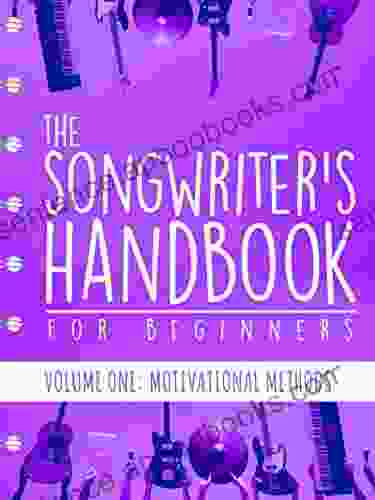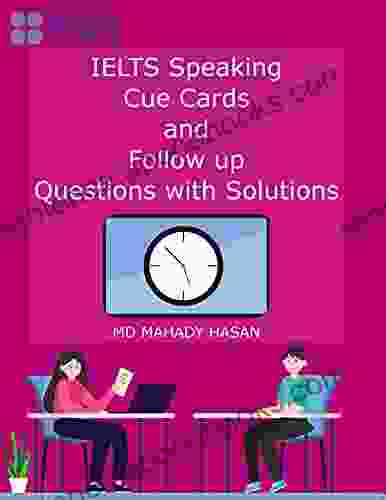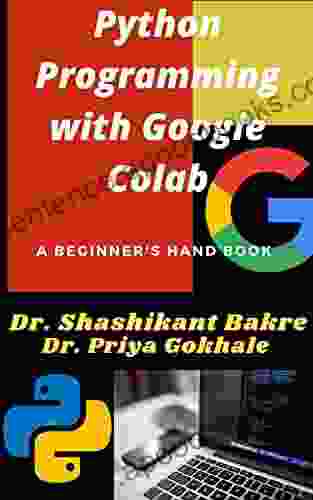Enhance Your IELTS Speaking Skills: The Ultimate Guide to Cue Cards and Follow-Up Questions

4.3 out of 5
| Language | : | English |
| File size | : | 1936 KB |
| Text-to-Speech | : | Enabled |
| Screen Reader | : | Supported |
| Enhanced typesetting | : | Enabled |
| Word Wise | : | Enabled |
| Print length | : | 135 pages |
| Lending | : | Enabled |
Are you preparing for the IELTS Speaking test and feeling overwhelmed by the prospect of facing cue cards and follow-up questions? Look no further! This comprehensive guide will equip you with the strategies, tips, and resources you need to ace this crucial component of the IELTS.
Section 1: Understanding the IELTS Speaking Test
The IELTS Speaking test evaluates your ability to communicate effectively in English. It consists of three parts:
- Part 1: A short interview where you answer general questions about yourself and familiar topics.
- Part 2: A monologue where you describe a person, place, event, or object based on a given cue card.
- Part 3: A discussion where you explore related topics and express your opinions on a variety of issues.
Section 2: Cue Cards and Follow-Up Questions
Cue cards provide the foundation for your Part 2 responses. They contain prompts that guide you in developing a coherent and well-organized speech. Follow-up questions delve deeper into your response, testing your ability to elaborate and provide further details.
How to Use Cue Cards Effectively
- Read carefully: Understand the main idea and specific details of the cue card.
- Brainstorm ideas: Quickly generate ideas related to the topic and organize your thoughts.
- Structure your response: Plan a clear , body paragraphs, and .
- Use strong vocabulary: Choose precise and appropriate words to convey your ideas effectively.
- Practice aloud: Rehearse your speech to improve fluency and pronunciation.
Follow-Up Questions: A Challenge and an Opportunity
Follow-up questions are designed to test your flexibility and depth of knowledge. They may ask you to provide additional details, clarify your opinions, or discuss related issues.
- Listen attentively: Focus on the specific question being asked.
- Respond thoughtfully: Take time to consider your answer before speaking.
- Expand your ideas: Provide further details or examples to support your response.
- Stay relevant: Keep your answers on topic and avoid rambling.
- Use appropriate language: Maintain the same level of formality and tone as in your initial response.
Section 3: Essential Resources for Success
IELTS Speaking Cue Cards and Follow-Up Questions With Solutions
This comprehensive guidebook provides a vast collection of up-to-date cue cards and corresponding follow-up questions. Each entry includes detailed answer suggestions and expert tips to help you refine your responses.
Benefits:
- Over 100 cue cards covering various topics
- Authentic follow-up questions to simulate the test environment
- Expert-crafted answer suggestions to guide your preparation
- Helpful tips and strategies to enhance your performance
- Organized by topic for easy navigation
Free Download your copy today and unlock the secrets to IELTS Speaking success!
Other Useful Resources
- Official IELTS website: https://www.ielts.org
- IELTS Practice Test: https://www.ielts.org/practice-tests
- British Council IELTS preparation materials: https://www.britishcouncil.org/exam/ielts/prepare
With the right preparation and a solid understanding of cue cards and follow-up questions, you can confidently approach the IELTS Speaking test. Remember to practice diligently, seek feedback from a qualified instructor or IELTS preparation course, and utilize reputable resources like "IELTS Speaking Cue Cards and Follow-Up Questions With Solutions." By following the strategies and tips outlined in this guide, you will embark on a successful journey towards achieving your desired IELTS band score.
4.3 out of 5
| Language | : | English |
| File size | : | 1936 KB |
| Text-to-Speech | : | Enabled |
| Screen Reader | : | Supported |
| Enhanced typesetting | : | Enabled |
| Word Wise | : | Enabled |
| Print length | : | 135 pages |
| Lending | : | Enabled |
Do you want to contribute by writing guest posts on this blog?
Please contact us and send us a resume of previous articles that you have written.
 Book
Book Novel
Novel Page
Page Chapter
Chapter Text
Text Story
Story Genre
Genre Reader
Reader Library
Library Paperback
Paperback E-book
E-book Magazine
Magazine Newspaper
Newspaper Paragraph
Paragraph Sentence
Sentence Bookmark
Bookmark Shelf
Shelf Glossary
Glossary Bibliography
Bibliography Foreword
Foreword Preface
Preface Synopsis
Synopsis Annotation
Annotation Footnote
Footnote Manuscript
Manuscript Scroll
Scroll Codex
Codex Tome
Tome Bestseller
Bestseller Classics
Classics Library card
Library card Narrative
Narrative Biography
Biography Autobiography
Autobiography Memoir
Memoir Reference
Reference Encyclopedia
Encyclopedia Noora Lori
Noora Lori Brett Lunceford
Brett Lunceford Melissa Mcshane
Melissa Mcshane Dave Thompson
Dave Thompson Elizabeth Wetmore
Elizabeth Wetmore Gareth Edwards
Gareth Edwards Gustavo Cerbasi
Gustavo Cerbasi Joseph I Sirven
Joseph I Sirven Jonathan Bell
Jonathan Bell Elizabeth Green
Elizabeth Green Izabella Brooks
Izabella Brooks Ellen Anne Eddy
Ellen Anne Eddy Daniel J Sharfstein
Daniel J Sharfstein Ernst Fraenkel
Ernst Fraenkel Barry A Crouch
Barry A Crouch Dale Cox
Dale Cox Elodie Harper
Elodie Harper Scott F Neve
Scott F Neve Van Allen
Van Allen Dylan Rodriguez
Dylan Rodriguez
Light bulbAdvertise smarter! Our strategic ad space ensures maximum exposure. Reserve your spot today!

 Charles ReedEmbrace the Enchanting Tale of Little Hope Novel: A Grifter's Journey through...
Charles ReedEmbrace the Enchanting Tale of Little Hope Novel: A Grifter's Journey through... Elias MitchellFollow ·3k
Elias MitchellFollow ·3k Robert FrostFollow ·4.7k
Robert FrostFollow ·4.7k Truman CapoteFollow ·11.4k
Truman CapoteFollow ·11.4k Milan KunderaFollow ·6.5k
Milan KunderaFollow ·6.5k Harvey BellFollow ·7.8k
Harvey BellFollow ·7.8k José SaramagoFollow ·13.7k
José SaramagoFollow ·13.7k Eddie BellFollow ·15.5k
Eddie BellFollow ·15.5k Alvin BellFollow ·12k
Alvin BellFollow ·12k

 Julian Powell
Julian PowellShetland Pony: Comprehensive Coverage of All Aspects of...
The Shetland...

 Cason Cox
Cason CoxHow Anaesthetics Changed the World: A Medical Revolution...
Imagine a world where surgery is an...

 Harold Powell
Harold PowellUnleash Your Inner Songwriter: The Ultimate Guide for...
Calling all aspiring songwriters!...

 Nikolai Gogol
Nikolai GogolUnleash Your Artistic Potential: Quick Draw Anatomy for...
In the dynamic and visually...

 Tim Reed
Tim ReedThe Rock 'n' Roll Life of Legendary Sax Man Bobby Keys
The Rock 'n' Roll Life...

 Damon Hayes
Damon HayesMoney Management Activities for Youth: A Guide to...
In an era marked by rapidly...
4.3 out of 5
| Language | : | English |
| File size | : | 1936 KB |
| Text-to-Speech | : | Enabled |
| Screen Reader | : | Supported |
| Enhanced typesetting | : | Enabled |
| Word Wise | : | Enabled |
| Print length | : | 135 pages |
| Lending | : | Enabled |










